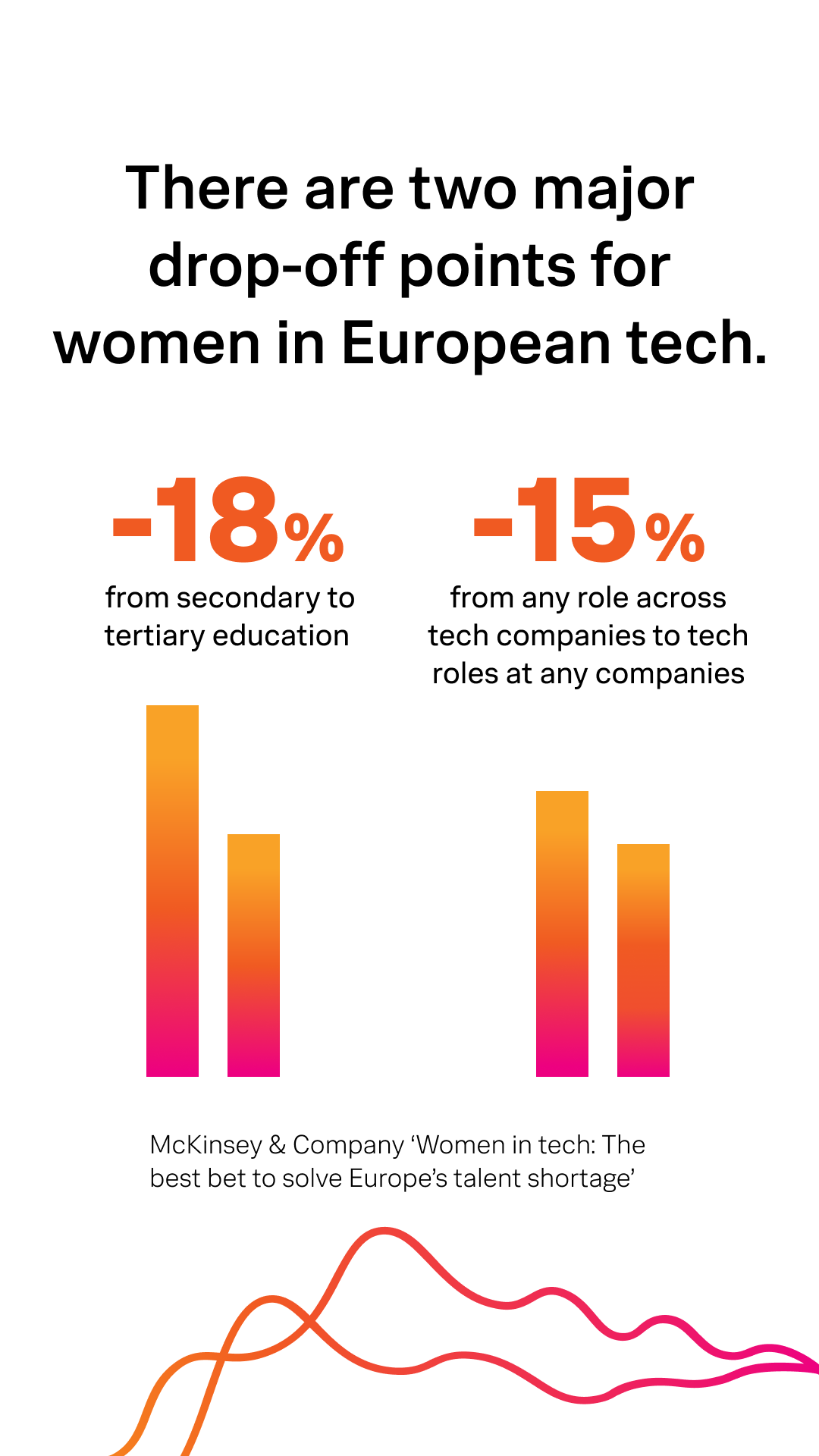Showcasing Women in Tech with Lucy Elliott

When Lucy Elliott first came to me with the idea for the Womxn+ (pronounced “women plus”) ERG to take over the Splunk Instagram for one week, it felt like a no-brainer. Lucy, a technical support engineer, and I both understand the power that visibility can have to help increase women in technical roles.
 “The takeover for me seemed like the perfect way to showcase our amazing women in tech to a large audience, and be a part of the collection of content out there which is representing women within this area,” said Lucy. And the data supports why Lucy is right – if you can’t see people like yourself in the role, it’s that much harder to aspire to it. According to a 2023 study by WomenTech Network, women hold just 28% of all jobs in computer and mathematical occupations, and 15.9% of jobs in engineering and architecture occupations. The same study showed that in the European Union, women make up only 19.1% of the information and communication technology sector.
“The takeover for me seemed like the perfect way to showcase our amazing women in tech to a large audience, and be a part of the collection of content out there which is representing women within this area,” said Lucy. And the data supports why Lucy is right – if you can’t see people like yourself in the role, it’s that much harder to aspire to it. According to a 2023 study by WomenTech Network, women hold just 28% of all jobs in computer and mathematical occupations, and 15.9% of jobs in engineering and architecture occupations. The same study showed that in the European Union, women make up only 19.1% of the information and communication technology sector.
Armed with those statistics, Lucy sat down with eight other Splunkers throughout our Europe, Middle East, Africa (EMEA) region to learn about their path into, and experience working in, tech. Lucy was surprised to hear how some Splunkers found their way into tech. Five out of eight women she talked with did not study a technology related field in school, but gained training and experience in other ways. But this isn’t as uncommon as you might think; a McKinsey report found that 44% of female tech talent in Europe have a non-STEM educational background.
As many Splunkers pointed out in their interviews, there are lots of resources at your disposal even if you didn’t study a tech-related field. But first, “the most important thing is to identify which area of tech you might like or what you like to explore,” according to Kasia Gucik, technical support manager. From there, Splunkers suggest exploring online courses (both free and paid), building your network through online forums and tech meetups, staying up-to-date on industry trends, and finding a good mentor in the industry.
“I would say that if you are looking to transition into tech, don't be discouraged by your background. Stay curious. This is one main skill that everyone should have while being in the tech world. Be persistent in your learning.” - Hela Hosni, Sales Engineer
 The same McKinsey report also found that there are two major drop-off points for women in tech in Europe. The first is at the end of secondary education (18% drop), and the second is after entering a tech role (15% drop). Many of our Splunkers spoke about the challenges they felt when they first entered their role. According to Sales Engineer Manushree Malu, “when you graduate and you haven't had much industry experience, you're going to have quite a few challenges, to be completely honest,” she told Lucy with a chuckle. “I didn't feel like I had a large enough understanding around security practices and concepts. So learning everything from scratch was a little bit daunting, but I guess you've got to be comfortable with being uncomfortable. So I learned to do that, and I'm still learning to do that.”
The same McKinsey report also found that there are two major drop-off points for women in tech in Europe. The first is at the end of secondary education (18% drop), and the second is after entering a tech role (15% drop). Many of our Splunkers spoke about the challenges they felt when they first entered their role. According to Sales Engineer Manushree Malu, “when you graduate and you haven't had much industry experience, you're going to have quite a few challenges, to be completely honest,” she told Lucy with a chuckle. “I didn't feel like I had a large enough understanding around security practices and concepts. So learning everything from scratch was a little bit daunting, but I guess you've got to be comfortable with being uncomfortable. So I learned to do that, and I'm still learning to do that.”
Despite the challenges, there is still a lot that these Splunkers love about their journey in tech. Many expressed similar sentiments to Jane Scott, a technical support account manager in London. Jane said, “I like working in tech because it's really fast moving. There's always new things to learn. The products are interesting, they're always changing and evolving. And every time there's a new technology that comes out, there's changes made to existing technology as well. So I just really love learning new things.” Others, like Technical Product Specialist Kelly Hayward, put it simply: “I like the challenge.”
“It's an industry that's changing all of the time. There's always opportunities for personal growth and development and for keeping up with new technology. There's always something new to learn.” - Gemma Micklewright, Technical Support Engineer
When the Instagram takeover was done, Lucy told me, “I was surprised that after all the interviews had taken place I felt quite emotional reflecting on everyone's different stories and how they got to where they are. I felt very privileged to be able to conduct these interviews and create a space where everyone felt like they were able to share.”
You can still view it all on the Splunk Instagram in the story highlight, "WIT Takeover." We hope you feel inspired and learned something from the amazing experiences of our Splunkers!
Related Articles
About Splunk
The world’s leading organizations rely on Splunk, a Cisco company, to continuously strengthen digital resilience with our unified security and observability platform, powered by industry-leading AI.
Our customers trust Splunk’s award-winning security and observability solutions to secure and improve the reliability of their complex digital environments, at any scale.




